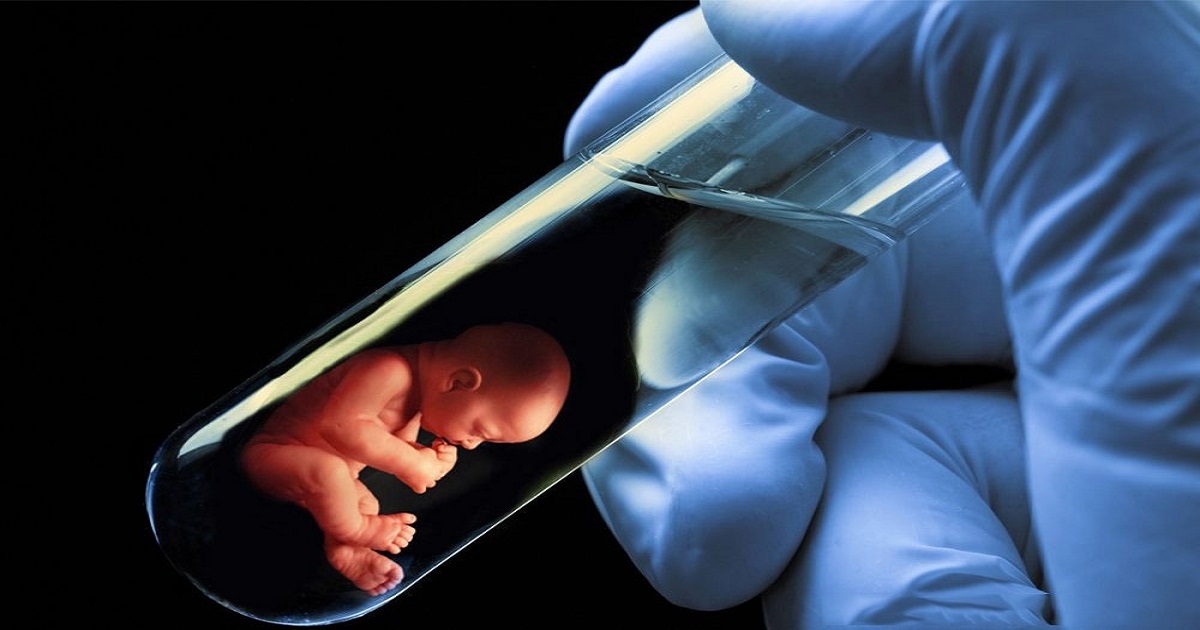Welcome to Med Fertility, your trusted destination for fertility solutions in Georgia. We understand the significance of the Test Tube Baby Cost in Georgia and strive to provide transparent and comprehensive information to our patients.
Our center offers cutting-edge technologies and personalized care to individuals and couples on their journey to parenthood. With a team of experienced fertility specialists and state-of-the-art facilities, we ensure that each patient receives the highest standard of care tailored to their unique needs.
At Med Fertility, we prioritize patient satisfaction and success, guiding you through every step of the test tube baby process with compassion and expertise. Whether you’re just beginning to explore fertility treatments or seeking advanced solutions, we are here to support you with the knowledge and resources needed to make informed decisions about your fertility journey.
Trust Med Fertility to help you achieve your dream of starting or expanding your family.
Understanding The Process of Test Tube Baby
- In Vitro Fertilization (IVF) Process: IVF, commonly known as the test tube baby procedure, involves fertilizing an egg with sperm outside the body in a laboratory setting. This process allows for the creation of embryos, which are then transferred to the uterus for implantation.
- Ovulation Induction: Before IVF begins, the woman typically undergoes hormonal therapy to stimulate the ovaries to produce multiple eggs. This increases the chances of successful fertilization during the IVF process.
- Egg Retrieval: Once the eggs have matured, they are retrieved from the woman’s ovaries through a minimally invasive surgical procedure called follicular aspiration. This procedure is usually performed under sedation or anesthesia.
- Fertilization: The retrieved eggs are then combined with sperm in a laboratory dish to facilitate fertilization. This can be done through conventional insemination, where sperm are placed directly with the eggs, or through intracytoplasmic sperm injection (ICSI), where a single sperm is injected directly into an egg.
- Embryo Culture: After fertilization, the embryos are cultured in a controlled environment in the laboratory for several days. During this time, they are monitored for signs of development and quality.
- Embryo Transfer: Once the embryos reach a certain stage of development, typically around 3 to 5 days after fertilization, one or more embryos are transferred into the woman’s uterus. This is done using a thin catheter inserted through the cervix. Any remaining embryos of good quality may be frozen for future use.
Factors Influencing Test Tube Baby Costs
Clinic Reputation and Success Rates: The reputation and success rates of the fertility clinic play a significant role in determining the cost of Test Tube Baby procedures. Centers with higher achievement rates and a solid standing frequently charge higher expenses for their administrations. This is on the grounds that they put resources into cutting edge innovation, experienced staff, and quality consideration, which can bring about improved results for patients. Patients may be willing to pay a premium for the assurance of higher success rates and better quality of care.
Type of Fertility Treatment Required: The specific type of fertility treatment needed can greatly impact the overall cost of Test Tube Baby procedures. Different patients may require different procedures based on their individual fertility issues. For example, some patients may only need basic IVF, while others may require additional procedures such as Intracytoplasmic Sperm Injection (ICSI), Preimplantation Genetic Testing (PGT), or donor egg/sperm treatments. The complexity and extent of the treatment required will influence the overall cost, as more advanced procedures typically involve higher expenses.
Medical Screening and Tests: Before undergoing Test Tube Baby procedures, patients must undergo a series of medical screenings and tests to assess their fertility status and overall health. These screenings and tests can incorporate blood tests, ultrasounds, hereditary screenings, and ripeness assessments. The cost of these medical screenings and tests can vary depending on the number and type of tests required, as well as the specific protocols of the fertility clinic. Patients should budget for these additional expenses when considering the total cost of Test Tube Baby procedures.
Medication Costs: Another significant factor influencing Test Tube Baby costs is the cost of medications used during the fertility treatment process. These medications include hormonal drugs used to stimulate the ovaries, regulate the menstrual cycle, and support embryo implantation. The particular medications endorsed will rely upon the patient’s singular richness issues and treatment convention. Prescription expenses can shift broadly contingent upon the sort, measurements, and length of treatment required. Some patients may also require multiple cycles of medication, further increasing the overall medication costs. Patients should be prepared for these expenses, as medication costs can constitute a substantial portion of the total Cost of Test Tube Baby procedures.
Cost of Test Tube Baby in Georgia
The Cost of Test Tube Baby in Georgia, also known as in vitro fertilization (IVF), typically ranges from INR 2,00,000 to INR 3,00,000 per cycle. This cost includes the initial consultation, ovarian stimulation medications, egg retrieval procedure, sperm collection, fertilization in the laboratory, embryo transfer, and follow-up consultations. Additional services such as embryo freezing, genetic testing, and medication may incur extra charges. It’s important to note that the total cost can vary based on individual factors such as the need for additional procedures and medications. Consulting with a fertility specialist in Georgia can provide a more accurate estimate tailored to your specific needs and circumstances.
Breakdown of Test Tube Baby Costs
Consultation Fees: Before beginning Test Tube Baby procedures, patients typically undergo initial consultations with fertility specialists. These consultations involve discussions about medical history, fertility concerns, treatment options, and financial considerations. Fertility clinics may charge consultation fees for these appointments, which can vary depending on the clinic and the expertise of the specialist. The particular medications endorsed will rely upon the patient’s singular richness issues and treatment convention. Prescription expenses can shift broadly contingent upon the sort, measurements, and length of treatment required.
Diagnostic Tests Costs: Diagnostic tests are an essential part of the Test Tube Baby process, as they help fertility specialists assess the patient’s fertility status and identify any underlying issues that may affect treatment outcomes. These tests can incorporate blood tests, ultrasounds, semen examination, hereditary screenings, and other specific tests depending on the situation. The cost of diagnostic tests can vary depending on the number and type of tests required, as well as the pricing structure of the fertility clinic. Patients should budget for these costs as part of their overall Test Tube Baby expenses.
Medication Costs: Medications are a crucial component of Test Tube Baby procedures, as they help stimulate the ovaries, regulate the menstrual cycle, and support embryo development and implantation. The cost of medications can vary widely depending on the specific drugs prescribed, the dosage, and the duration of treatment. Some patients may require multiple cycles of medication, further increasing the overall medication costs. Patients should discuss medication costs with their fertility clinic and pharmacy to understand the potential expenses involved and explore options for cost-saving measures such as generic alternatives or discount programs.
Procedure Costs: The actual Test Tube Baby procedure, also known as in vitro fertilization (IVF), involves several steps, including egg retrieval, sperm collection, fertilization in the laboratory, embryo culture, and embryo transfer. The cost of the IVF procedure can vary depending on the complexity of the treatment required, the number of cycles needed, and any additional procedures such as Intracytoplasmic Sperm Injection (ICSI) or Preimplantation Genetic Testing (PGT). Fertility clinics typically provide a detailed breakdown of procedure costs, including fees for laboratory services, medical equipment, and staff expertise.
Additional Services Costs: In addition to the basic Test Tube Baby procedure, patients may incur additional costs for supplementary services and optional add-ons. These extra administrations can incorporate undeveloped organism freezing and stockpiling, hereditary testing of incipient organisms, undeveloped organism move strategies, and sedation expenses. A few patients may likewise pick correlative treatments, for example, needle therapy or guiding administrations to help their richness process. The cost of these additional services can vary depending on the clinic and the specific services requested. Patients should inquire about these costs upfront and consider their budget and preferences when making decisions about additional services.
Success Rates of Test Tube Baby
When considering the success rates of Test Tube Baby procedures, it’s essential to understand that these rates can vary depending on various factors such as the age of the woman, the cause of infertility, and the quality of the clinic performing the procedure. On average, success rates for IVF procedures range from around 40% for women under 35 to 10% for women over 40. However, it’s crucial to interpret these rates cautiously and discuss them with a fertility specialist who can provide personalized guidance based on individual circumstances. Factors such as lifestyle, medical history, and specific treatment protocols can also impact success rates, highlighting the importance of tailored approaches in fertility treatment.
Cost-Effective Strategies for Test Tube Baby
Choosing the right clinic: Selecting the appropriate fertility clinic is crucial in ensuring both the success and affordability of Test Tube Baby procedures. Researching and comparing clinics based on their success rates, reputation, and pricing structures can help individuals make informed decisions. Opting for a clinic with a proven track record of success and transparent pricing can ultimately lead to better outcomes and minimize unexpected costs.
Considering all financial options: It’s essential for individuals considering Test Tube Baby procedures to explore all available financial options to make the process more affordable. This incorporates exploring protection inclusion, government help programs, fertility center installment plans, awards, and grants. By thoroughly investigating these options, individuals can identify sources of financial support that align with their needs and circumstances, potentially reducing the financial burden of fertility treatments.
Importance of planning ahead: Planning ahead is key to managing the costs associated with Test Tube Baby procedures effectively. This includes making a complete financial plan that records for every likely cost, including conference charges, demonstrative tests, drug expenses, and strategy expenses. Additionally, individuals should consider setting aside funds for unforeseen expenses and emergencies. By proactively planning for the financial aspects of fertility treatments, individuals can alleviate stress and focus on their journey towards parenthood.
Conclusion
In conclusion, understanding the costs associated with Test Tube Baby procedures in Georgia is essential for individuals embarking on the journey of fertility treatments. By familiarizing themselves with the factors influencing costs, exploring financial assistance options, and implementing cost-effective strategies, individuals can better manage the financial aspect of their fertility journey. Choosing the right clinic, considering all available financial options, and planning ahead are key steps in making Test Tube Baby procedures more affordable and accessible. Ultimately, while the cost of fertility treatments can be significant, the potential for building a family makes the investment worthwhile for many individuals. With careful planning and informed decision-making, individuals can navigate the financial aspects of Test Tube Baby procedures with confidence and hope.
Error: Contact form not found.











